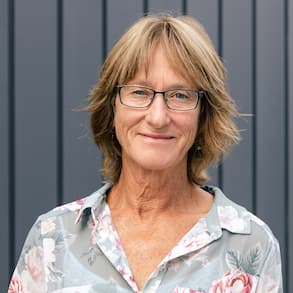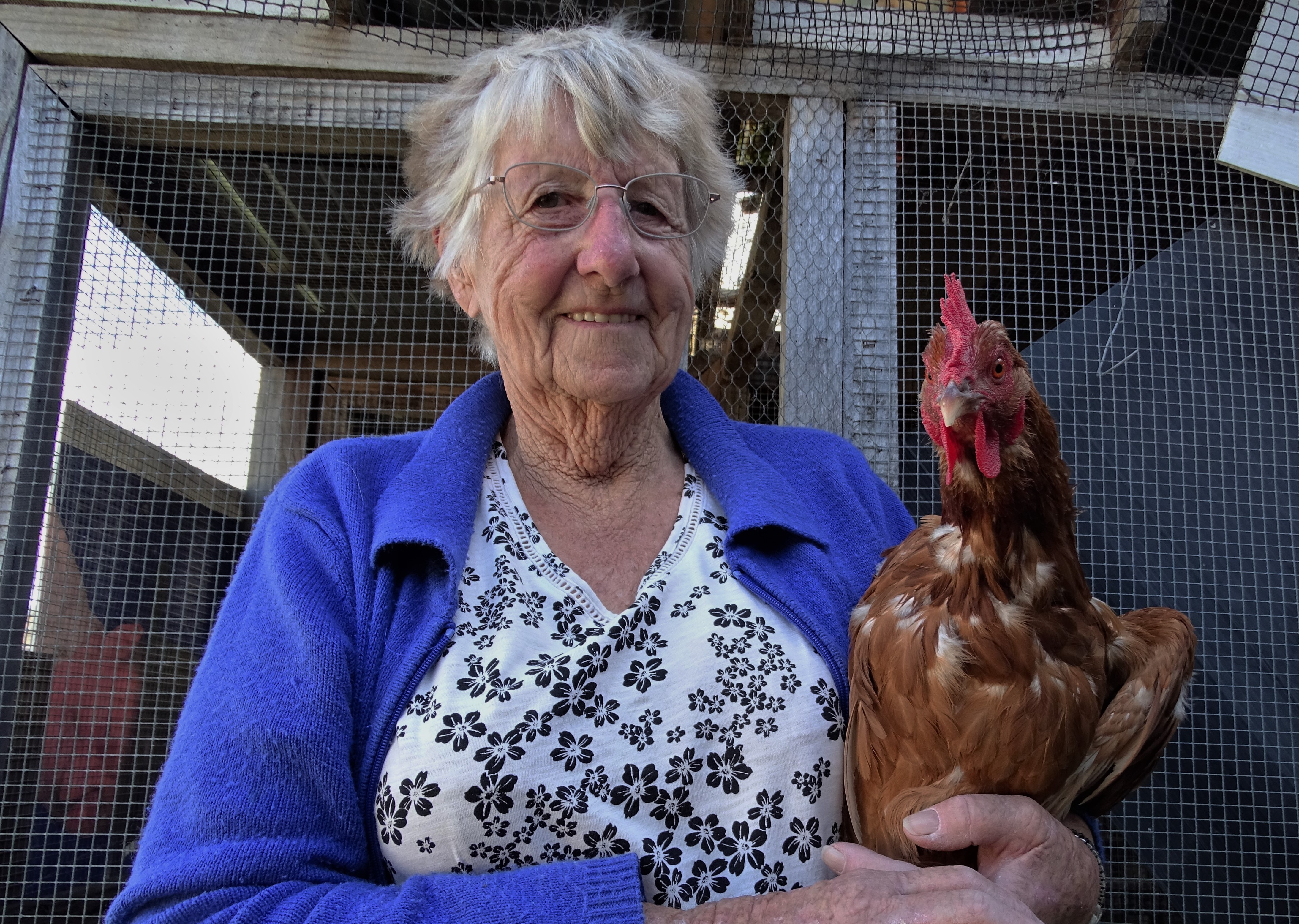Chook rules keep neighbours happy


Anne Fryer has learnt a thing or two about hens over the years. Photo: Anne Hardie.
Knowing the sex of your day-old chicks is a good way to avoid unwanted roosters waking the neighbourhood.
That is the advice from Richmond bird enthusiast Anne Fryer, who has been involved in poultry shows and breeding birds for most of her life. This is why her back yard is stocked with birdlife, including six laying hens.
Six chooks is the limit in a residential area in Tasman and roosters are not permitted – not that she wants them anyway.
So, Anne buys sexed day-old chicks when it is time for replacements.
She says it is a common mistake that people buy chickens and find they grow up to be roosters and require some tough decisions.
The increasing price of eggs is causing many people to install a few hens in their garden, but each council has rules to keep both neighbours and chooks happy.
While the Tasman District Council allows six hens to be kept on a residential property, Nelson City Council allows up to 12 hens – or chickens as it calls them.
In Tasman, residential chicken enclosures have to be 10 metres from dwellings on adjoining sites, as well as two metres from a boundary.
Roosters are not allowed anywhere in residential areas by either council.
TDC communication officer Tim O’Connell says the rules seem to work well and most of the incidents that arise revolve around chickens breaching the setback boundaries or escaping their enclosure.
Anne has years of advice for newbie chicken farmers in town, including keeping the birds safe from cats or how to introduce a new bird to the flock.
“If you bring a strange bird into the pen, you have to do it in the dark and put it on the perch. Then they won’t fight because they wake up and they have slept beside the new bird.
“People don’t realise what you have to feed them to get eggs. They think they just feed them on bread and food scraps. I feed them on pellets and wheat.”
Anne says the hens usually lay eggs consistently for two years and tail off as they get older. Old chooks usually “go in the pot”.
“I’ve got one chook that walked in off the street. Something must have disturbed her and she has come in here because I had chooks. I’ve had her three years now and I still get three eggs a week from her.”
Anne used to get about 40 eggs a week from her six hens, but as they have got older it has reduced to about 20. That is still enough to give her surplus eggs to take along to her knitting group each week.
